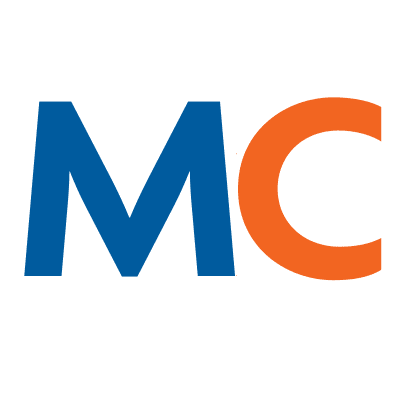- Solutions
- Solutions
- Home Health
- Hospice
- Life Plan Community
- Palliative Care
- Private Duty
- Senior Living
- Skilled Nursing
- Skilled Nursing
- Skilled Nursing Software
- Advanced Insights
- Customer relationship management
- Data and analytics
- Financial & operations management
- Marketing
- Nutrition management
- Referral management
- Regulatory compliance
- Retail management
- Resident engagement
- Revenue cycle management
- Skilled nursing interoperability
- Partners
- Blogs
- Resources
- About

Diet strategies to improve senior health
Individualized dietary management is a major factor in keeping your facility’s residents not only healthy, but also happy. That’s why balancing the need to offer meals your residents enjoy with the clinical side of nutritional planning can go a long way toward reducing hospitalizations, improving outcomes and increasing resident satisfaction.
There are several health conditions that are common in senior facilities where dietary management can be especially effective. I’ll outline a few of these and highlight some technology tools that can help residents adhere to their specific dietary restrictions, reduce rehospitalizations and boost staff efficiency.
Conditions where a healthy diet can have a high impact
There are some conditions where dietary restrictions play a key role in managing the resident’s health. Congestive heart failure (CHF) is one example of a condition that needs to be actively managed to prevent negative effects. We know those residents need to avoid high-sodium, high-fat foods and we need to carefully monitor fluids. Without close management, they could, in the space of a single day, consume far more of these nutrients than they should, which could put them back in the hospital. So it’s critical for facility staff to pay close attention to special diet orders for those with a CHF diagnosis.
Malnutrition is also a significant health issue. One study showed malnutrition was present in approximately 50% of post-acute care admissions, with another 41% at risk.1 Solving this is not only about making sure diets are nutritionally appropriate, but also that foods are prepared at the proper consistency so that residents who have issues chewing or swallowing still get the calories and nutrients they need.
Diabetes is another example. Managing blood sugar levels is critical both for the resident’s health and quality of life. This means staff needs to identify and monitor residents closely, provide related interventions and document clearly in the medical record so ensure your facility is fully reimbursed for this type of care.
In each of these instances, the right menu management software can not only streamline documentation but also give staff a way to offer residents meal options that adhere to dietary restrictions while still accommodating individual preferences and clinical needs. Software features such as nutritional analysis and interactive menus help you quickly build menus that are appropriate for each resident, and then allow you to adjust them based on special dietary needs or shifts in nutritional status.
In years past, there was a tendency to allow more liberal diets because of the complexity of developing special menus. But with current technology, there’s really no longer any reason to avoid implementing individualized menus that support better health outcomes for residents with specific health needs. And to help ensure full reimbursement, PDPM reports in your software capture the relevant details for those residents who qualify, removing that added task for your staff while helping improve your facility’s bottom line.
Helping residents make healthy choices
Your residents should be involved in choosing their meals for several reasons. First, because if they help make decisions and feel that they have some control over the foods they eat, they’re more likely to adhere to their doctor’s dietary recommendations. Second, if they aren’t allowed to express preferences or substitute one thing for another, they may simply refuse a meal and fail to get important nutrients.
Menu management software should allow you to work with residents to help them understand what is included in their diet plan, and to recommend substitutions they can choose that still work within their plan. Another helpful software feature is one that connects directly into the USDA’s FoodData Central tool so your staff can help residents evaluate and select foods that have been nutrient analyzed, to make compliance with special diets easier when substituting menu items.
Respecting cultural traditions and personal preferences
Although adherence to special diets for medical conditions is of prime importance for facilities, there are other reasons your residents may have special menu requests. Certain cultural or religious traditions can affect food choices, as can other preferences such as not eating meat or avoiding dairy products. A system that offers detailed resident profiles that integrates with your EHR makes it easy to quickly see these preferences and quickly adjust a menu to address them. It’s very important in diet management to honor residents’ cultural traditions and beliefs, and goes a long way toward high satisfaction ratings.
Meeting medical needs while managing costs
We’ve all seen how food prices have fluctuated over the past few years. That means it’s vital to monitor your facility’s food costs and take advantage of lower-cost substitutions whenever possible, even for special diets. An analysis based on diet type, so your dietitian can evaluate diet costs on any given day, is a valuable tool that helps dining operations staff plan menus that support resident health while also monitoring your facility’s bottom line.
Monitoring effectiveness of diet strategies
The key indicator that special diets are working for residents is health outcomes. If someone’s blood pressure is routinely lower after following a low-sodium diet, or you’ve stabilized a resident’s blood sugar by managing carbohydrate intake, you’ve been successful. If you’ve been able to track a resident’s food consumption and weight to prevent malnutrition, that’s a success.
Make every meal count
It’s essential to make sure your staff has the right tools to plan menus, estimate food costs, and make changes quickly based on availability of ingredients or resident preferences. MealTracker gives you the tools to manage nutrition details and offer satisfying meals that are a vital part of keeping your residents safe and healthy.
Request a demo today for a closer look at MatrixCare.
Amy Wooton
Amy Wooton, RDN, is a registered dietitian licensed in the state of Florida with over 18 years of experience in clinical nutrition leadership for senior communities as well as acute care, food service management, nutrition informatics, and wellness education. Amy is an active member of the Academy of Nutrition and Dietetics, was appointed Vice Chair on the Interoperability and Standards Committee, and is the leader of the Academy’s Nutrition Care Process Workgroup. Amy most recently accepted a Leadership Award from the Florida Academy of Dietetics. She has achieved years of diversified experience in all spectrums and disease improvement and prevention throughout each lifespan. Amy is a dedicated leader and is passionate about the success of nutrition interventions as an electronic solution to healthcare crises.
Related Posts


See MatrixCare in action
Start by having a call with one of our experts to see our platform in action.
MatrixCare offers industry-leading software solutions. Thousands of facility-based and home-based care organizations trust us to help them improve efficiency and provide exceptional care.
© 2024 MatrixCare is a registered trademark of MatrixCare. All rights reserved.






